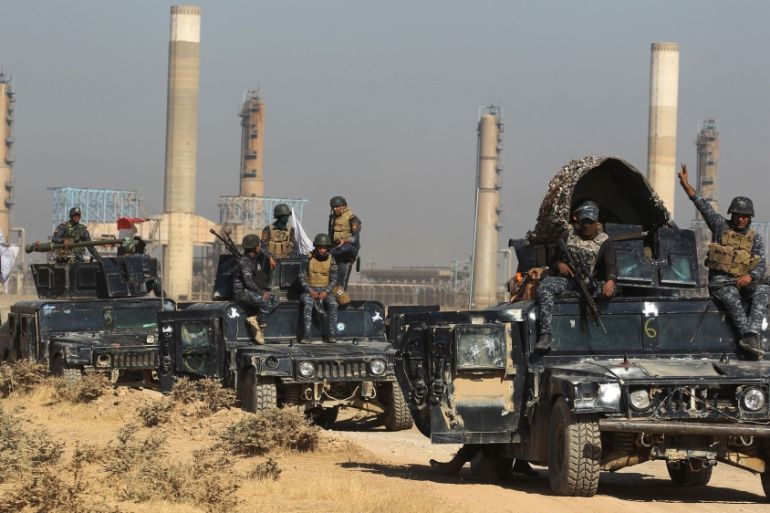What price have Iraqi Kurds paid for secession vote?
From suspended flights to an escalating military confrontation, Al Jazeera examines the fallout so far.

On September 25, Iraqi Kurds voted in a controversial secession referendum, amid rising regional tensions and international opposition. The referendum set off a chain of events, culminating this week in a military confrontation between Erbil and Baghdad.
Al Jazeera examines the key events so far.
Sept 24 – Iran suspends flights and closes airspace over the Kurdish region in northern Iraq.
Sept 25 – Iraqi Kurds cast their votes in the first Kurdish secession referendum since 2005.
Sept 25 – United Nations Secretary-General Antonio Guterres expresses concern over the effects of the referendum.
Sept 26 – Local media reports that more than 78 percent of the 5.2 million eligible Iraqi Kurdish voters turned out to vote.
Sept 26 – Turkish President Recep Tayyip Erdogan threatens to impose sanctions against the Kurdish region if the Kurdish Regional Government (KRG) does not “go back on this mistake”.
|
|
Sept 26 – Iraqi troops join the Turkish army for joint military exercises near Turkey’s border with northern Iraq.
Sept 27 – The votes are counted and Iraqi Kurds overwhelmingly back secession, with 92 percent voting “Yes”.
Sept 27 – Iraqi Prime Minister Haider al-Abadi rejects the referendum as illegal and refuses to hold negotiations on the basis of its results.
Sept 27 – The Iraqi parliament calls for the deployment of troops to the oil-rich city of Kirkuk to take control of its oilfields.
Sept 27 – The Iraqi Civil Aviation Authority notifies foreign airlines that international flights to the Kurdish region will be suspended from September 29 onwards.
Sept 27 – Abadi threatens to impose an international air embargo on the KRG if it does not hand over control of its airports, but the KRG refuses.
Oct 4 – Erdogan, along with Iranian President Hassan Rouhani, expresses opposition to the Kurdish referendum and calls for “more decisive action“.
Oct 12 – Peshmerga forces block roads to Mosul for several hours, after Kurdish authorities say they fear that Iraqi government forces and allied paramilitary units are preparing to launch an assault.

Oct 12 – Turkey says it will close its border gates with northern Iraq, while Abadi says he does not want to wage war on Kurdish citizens.
Oct 13 – Iraq’s state-sanctioned paramilitaries spokesperson, Karim al-Nouri, issues a stern warning to Kurdish President Masoud Barzani, while saying that his fighters have no immediate plans for military action.
Oct 13 – The KRG deploys thousands of troops around the disputed city of Kirkuk, fearing a potential attack by Iraqi government forces.
Oct 14 – Thousands of Iraqi soldiers and allied militia become locked in an armed standoff with Peshmerga forces in Kirkuk.
Oct 14 – A senior Kurdish official says that the Iraqi central government has granted Peshmerga forces until 2am the next day to surrender key military positions captured from ISIL since 2014 in Kirkuk.
Oct 16 – Iraqi government forces launch a “major operation” in Kirkuk, advancing towards oil fields and a strategic military base.